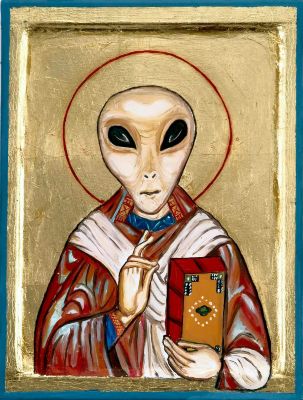Catholicism: scripture and tradition
Luther: scripture alone (sola scriptura)
That which is passed down
Faith
Community
Teaching authority
Documents
The Bible itself
Where do we get faith?
C: handed down to us from family, neighbors, church
P: individual’s response to the Bible, personal choice
C: Community was constituted by Christ and passed down to us
P: The chain was broken at some point and the best way to return to Christ’s plan is to go back to the Bible
P: Church communities are important but secondary, more like a club for people with a common interest
The most controversial
C: Jesus gave apostles instructions and impressions beyond what is in the Bible
C: Jesus created the office of bishop, who receives a certain authority
P: The bishops today do not continue the authority of the apostles in any meaningful way
Early documents not in the Bible
Early interpreters
Encyclicals
Dogmatic constitutions
Who created the Bible?
C: Tradition produced the Bible, Bible establishes tradition, intertwined
P: God gave the Bible to people
C: Christ
P: Scripture
Verbatim – word for word
Inerrant – without flaw
The role of God
The role of humans
All: reason, common sense, teachers
All but fundamentalists: scholarship necessary to understand in original context
C: interpret in community
C: respect official teachers
Luther: every individual is ultimately responsible for deciding
1452 – first printed Bible in Latin
1534 – Luther’s translation of the Bible into German
1611 – King James Version of the Bible in English
1965 – Vatican II encourages ordinary Catholics to read the Bible in their own language

Tradition is basically peer pressure from the older generations, so by changing it you change would our ancestors valued. However, you can also think about it as the current generation leaving an improved tradition.
what if it would change for the better?
What makes one person more qualified to have authority than another?
What can you do if you're subjected to certain traditions, but disagree with them?
I also think it’s important to have people be able to redirect any misunderstandings or wrong ideas so that only positive ones stick around.
who do you trust to interpret the bible. Just yourself... or maybe Martin Luther? Was he saying that scripture could only be interpreted by whoever is reading it?
If the bible is the supreme authority wouldn't the interpretation of the bible always stay the same and wouldn't change with the times? Also, wouldn't it make it harder to determine was the true meaning if the meaning does change with time?
I wonder how the fundamentalists came to be?